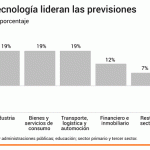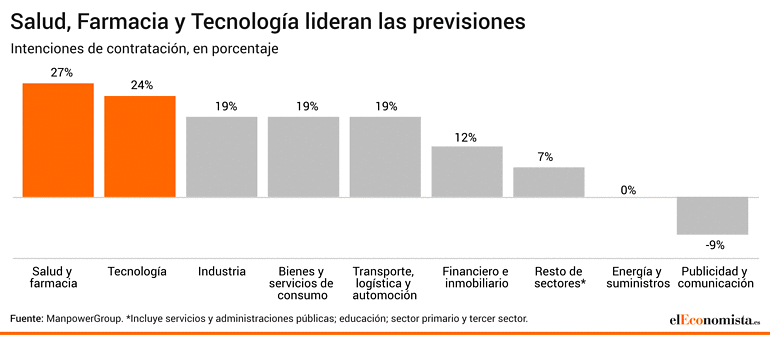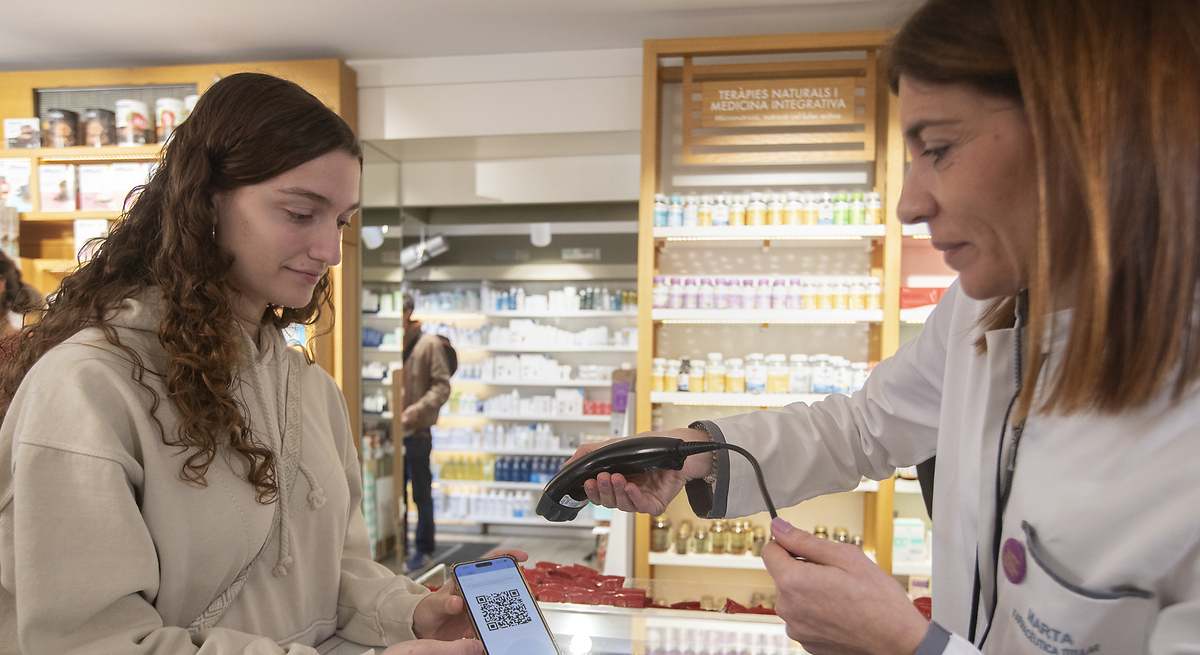
The labor market in Spain faces a summer full of expectations and challenges. According to the last ManpowerGroup “Employment Projection Study”, 37% of companies plan to increase their workforce, while 41% plan to maintain them, and two out of ten anticipate reductions. Although net hiring forecasts are at 15%, reflecting a slight improvement over the previous quarter, a decrease is noted compared to last year.
According to Francisco Ribeiro, Country Manager of Manpower, Spanish companies are demonstrating exemplary resilience despite a complex context. He stated that These companies continue to show intentions to expand their teams, suggesting optimism in the labor market. He highlighted the national economy’s ability to diversify beyond tourism and consumer goods and services.

Greater growth
The sector of health and pharmacy leads hiring intentions with 27%, reflecting high demand in these crucial sectors. This increase can be attributed to the growing need for health services and pharmaceuticals, especially in a post-pandemic context.
Julio Pérez, CMO of Atida Mifarma, highlights that “the health and pharmacy sector has proven to be one of the most resilient and essential, especially during the Covid-19 pandemic. This moment marked a before and after for us and underlined the importance of a easy access to health and pharmaceutical products.”Pérez also highlights the importance of having a trained team to serve customers: “The increase in demand for pharmaceutical products and services through the digital world leads to a constant need for more professionals to serve customers. Furthermore, we not only talk about pharmaceutical professionals but in ecommerce we also highlight logistics management and employment opportunities in areas such as data management, digital marketing or customer service.”
This increase in demand led to a constant need for personalized care, as well as easy, fast and safe access to pharmaceutical products. From Atida Mifarma they ensure that this is fulfilled, which is why the demand for this type of products continues to be high in the digital sector. The increase in demand for pharmaceutical products and services through the digital world leads to a constant need for more professionals to serve customers. Besides, “We not only talk about pharmaceutical professionals but in ecommerce we also highlight logistics management and employment opportunities in areas such as data management, digital marketing or customer service,” he adds.
Regarding the possible transition to a more competency assessment in the educational system, Pérez says: “This transition is viewed favorably by many companies since it aligns the training of students with the real needs of the labor market. Therefore, companies They must adapt to this change.”
María Valdés, director of professional career development at the Center for Higher Studies of the Pharmaceutical Industry (CESIF), belonging to the metrodora education group, highlights, for its part, that the economic situation affects the hiring of companies in the pharmaceutical industry, but not as much as the importance of re-skilling to adapt to the challenges of a world of rapid changes, as reflected in the McKinsey report on the trends and implications affecting the pharmaceutical industry. “The continuous evolution and adoption of digital technologies has allowed companies to improve their operational efficiency and discover new business opportunities.. Furthermore, increasing pressure to innovate and the need to adapt to new working arrangements have fostered an environment where the hiring of qualified personnel is essential to maintain competitiveness.”
Likewise, Valdés highlights that the economic situation is also reflected in the increase in challenges in the supply chain, which forces companies to be more strategic in their hiring decisions. “Geopolitical considerations and rising inflation also play a crucial roleincreasing the risk and the need for specific capabilities to manage these uncertainties.” However, the ability of companies to navigate these challenges translates into renewed confidence to invest in human talent, taking advantage of the opportunities for savings and optimization of resources that presents the current panorama.
Valdés considers that Spain has emerged as a key hub for the pharmaceutical and health industry, attracting operations here, thanks to the availability of highly qualified talent. “The presence of renowned universities and graduate schools, such as CESIF, that provide specialized and high-quality training, has been crucial in supplying the industry with new professionals trained and prepared to face the challenges of the sector.”
Furthermore, adaptability and innovation have become critical competencies for the future of the pharmaceutical sector and companies are investing in young, dynamic talent that can drive the cultural change necessary to stay at the forefront of the industry.
For his part, the technology sector, although it has decreased 10 points in the quarter-on-quarter comparison, it maintains net hiring estimates of 24%. This sector remains crucial due to continued digitalization and demand for advanced technological solutions.
Transport, logistics and automotive They present a net forecast of 19%. The first, in particular, has experienced significant growth, with an increase of 14 points compared to the previous quarter and 15 points compared to the same period last year. This increase may be related to the recovery of commerce and mobility after the restrictions of the pandemic.
Consumer and Industrial Goods and Services also They share a net forecast of 19%, showing stability and recovery. Industry, in particular, is benefiting from the revival of production and consumption.
Sectors in decline
In contrast, sectors such as energy and supplies show neutral forecastsand advertising and communication experience a notable quarter-on-quarter decline, standing at -9%, the lowest figure since records exist. This decline may be related to changes in demand and market dynamics, as well as the evolution of digital marketing strategies.
Analysis by autonomy
The northwestern area of Spain, which includes Galicia, Asturias and Castilla y León, shows the most optimistic forecasts with an increase of 15 points and a net projection of 20%. This region leads the creation of jobs for the summer.
The companies in the South Zone (Andalusia, Extremadura and the Canary Islands) and north (Aragón, Cantabria, La Rioja, Navarra and the Basque Country) also improve their forecasts compared to the previous quarter, both reaching 19%. This growth may be driven by the recovery of tourism and other key sectors in these regions.
He northeast (Catalonia and the Balearic Islands) maintains a forecast of 13%, while the center (Madrid and Castilla-La Mancha) and the I raised (Valencian Community and Region of Murcia) present positive forecasts of 11%, although with a slight decrease of two and six points respectively compared to the previous quarter.
Impact by company size
The Larger companies, with more than 1,000 employees, lead the job creation forecasts, with 23% for those with 1,000 to 4,999 employees and 20% for those with more than 5,000 employees. A significant improvement is also observed in companies with 50 to 249 employees, with an increase of 11 points compared to the previous quarter, reaching a net result of 17%. Smaller companies, with less than 50 employees, show a quarter-on-quarter adjustment of 5 points and a forecast of 12%.
At a global level, hiring expectations remain at 22%, with Spain being seven points below. The countries that lead the global ranking are Costa Rica (35%) and Switzerland (34%). In comparison, European countries such as Italy (16%), Portugal (18%), Germany (23%) and France (24%) show a pattern more similar to that of Spain. These figures reflect variability in the economic recovery and labor dynamics at a global level.

